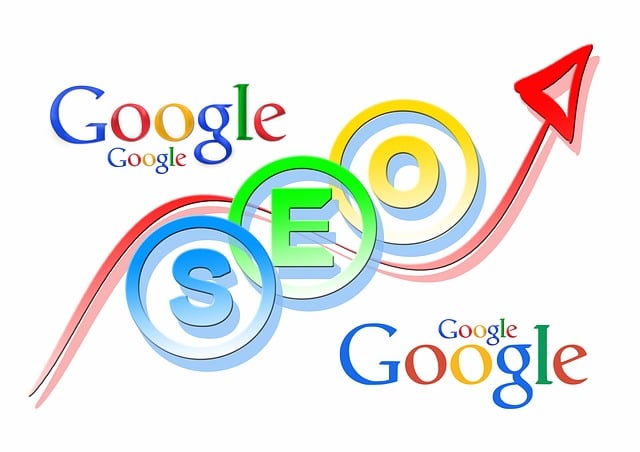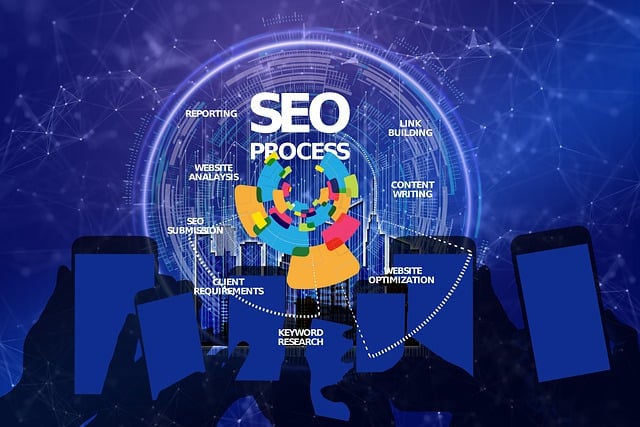In today’s digital landscape, understanding Search Engine Results Pages (SERPs) is paramount for SEO agency success. The recent insights from the SEO Agency Conference have shed light on the evolving role of SERPs in driving online visibility. This article delves into the intricate workings of SERPs, their advanced features, and how they impact content optimization strategies. We explore successful case studies, examine tools for SERP analysis, and look ahead to future trends, providing a comprehensive guide based on insights from the SEO Agency Conference.
Understanding SERP and Its Role in SEO Agency Success

In the realm of digital marketing, SERP (Search Engine Results Page) stands as a gateway to online success for any SEO agency. It’s more than just a list of websites; it’s a carefully curated presentation of relevant results tailored to a user’s search query. As an SEO Agency Conference highlight, mastering SERP understanding is pivotal for achieving top rankings and driving organic traffic.
SERP plays a pivotal role in shaping online visibility. By optimizing content and strategies to align with SERP algorithms, agencies can ensure their clients’ websites appear at the forefront of search results. This involves a deep grasp of keyword research, on-page optimization, and understanding user intent—all key factors that influence where a website lands on the SERP. In today’s competitive digital landscape, staying ahead in SERP rankings is not just an advantage but a necessity for SEO agency success.
The Evolution of Search Engine Results Pages (SERPs)

Search Engine Results Pages (SERPs), once a simple list of links, have evolved significantly over the years, transforming into dynamic and personalized experiences. This evolution is driven by advancements in artificial intelligence, machine learning, and user behavior analysis. At recent SEO Agency Conferences, experts have highlighted how SERPs now incorporate rich snippets, featured snippets, knowledge graphs, and even AI-generated answers, enhancing user satisfaction with relevant, contextual information at a glance.
As search engines like Google continue to refine their algorithms, SERPs are becoming more intuitive, offering voice search capabilities, localized results, and content tailored to individual users’ preferences. This shift has profound implications for digital marketers and SEO agencies, necessitating a deep understanding of these changes to craft effective strategies that resonate with modern searchers.
Advanced SERP Features and Their Impact on Visibility

In today’s digital landscape, Search Engine Results Pages (SERPs) have evolved beyond basic text listings, incorporating advanced features that significantly impact online visibility. These enhancements, often discussed at prominent SEO Agency Conferences, offer businesses enhanced opportunities to captivate audiences and drive traffic. Features such as rich snippets, knowledge graphs, and featured snippets provide structured data that search engines use to display information in a more visually appealing and informative manner.
For instance, rich snippets include ratings, reviews, pricing, or other relevant details about a business, boosting its credibility and click-through rates. Knowledge graphs connect entities and concepts, providing context and enhancing the user experience. Featured snippets extract key information from content to answer direct search queries, positioning businesses at the forefront of search results. These advanced SERP features not only increase visibility but also encourage users to engage with search results, ultimately driving more qualified leads and conversions.
Strategies for Optimizing Content to Dominate SERPs

In today’s digital landscape, a successful SEO strategy is paramount for any business aiming to dominate online visibility. One of the key areas of focus for any SEO Agency Conference attendee should be content optimization, as it plays a pivotal role in securing top positions on Search Engine Results Pages (SERPs). By understanding user intent and consistently delivering relevant, high-quality content, agencies can ensure their clients’ websites remain competitive. This involves conducting thorough keyword research to identify terms and phrases that potential customers are using when searching for products or services.
Once identified, these keywords should be seamlessly integrated into website content, meta titles, and descriptions without compromising readability. Additionally, creating content that provides valuable insights and answers common queries can foster user engagement, encouraging visitors to spend more time on the page, reducing bounce rates, and signaling to search engines that the site offers a rich user experience. Regularly updating content, optimizing for mobile devices, and leveraging internal linking strategies are further tactics that agencies should advocate for to help their clients achieve long-term success in SERP rankings.
Behind the Scenes: How Search Engines Rank Websites

At a recent SEO Agency Conference, industry experts shed light on the intricate process of search engine ranking. Behind the scenes, search engines like Google employ sophisticated algorithms that consider hundreds of factors to determine a website’s relevance and authority. These include on-page elements like keyword usage, content quality, and meta tags, as well as off-page signals such as backlinks and social media engagement.
The discussion revealed that search engines constantly evolve their ranking criteria, with regular updates aimed at improving user experience. Staying ahead in this dynamic landscape requires an SEO Agency Conference to exchange insights and adapt strategies accordingly. Understanding these inner workings is crucial for any agency aiming to deliver top-tier results for its clients.
Case Studies: Successful SERP Optimization Campaigns

Case studies from successful SERP optimization campaigns offer invaluable insights for any SEO agency attending a conference or workshop. These real-world examples demonstrate proven strategies and tactics that drive tangible results, such as increased organic traffic, improved click-through rates, and higher rankings. By studying these successful campaigns, agencies can gain a deeper understanding of how to tailor their approach for different industries and client needs.
For instance, some case studies might highlight the power of keyword research in identifying long-tail keywords that offer better conversion rates. Others could showcase the effectiveness of content optimization techniques like meta title and description adjustments, internal linking strategies, and schema markup implementation. Additionally, successful SERP campaigns often involve leveraging local SEO for businesses with physical locations, utilizing rich snippets to enhance search results, and staying up-to-date with algorithm changes to maintain rankings.
Tools and Technologies for SERP Analysis and Research

The Future of SERPs: Trends and Predictions

As we move forward into an increasingly digital future, the Search Engine Results Pages (SERPs) are set to evolve significantly. At recent SEO Agency Conferences, experts have predicted a shift towards more personalized and interactive experiences. Voice search will continue to grow in popularity, with users expecting natural language queries to yield relevant, contextual results. Additionally, artificial intelligence (AI) and machine learning will play a pivotal role in understanding user intent and delivering tailored content.
Visual search is another trend that’s gaining traction, suggesting that images and videos could become primary search tools, especially for product-oriented searches. SERPs might also incorporate more dynamic elements like live updates, interactive maps, and augmented reality (AR) experiences, enhancing the user journey. These advancements will require SEO strategies to adapt, focusing on creating content that resonates with these new search behaviors and technologies.
Key Takeaways from the SEO Agency Conference on SERP Insights

The recent SEO Agency Conference provided valuable insights into the ever-evolving landscape of Search Engine Results Pages (SERPs). Key takeaways highlighted the growing importance of user experience and content quality in optimizing search rankings. Experts emphasized that understanding user intent and creating comprehensive, engaging content are essential strategies for any agency aiming to excel in the competitive digital market.
Additionally, the conference shed light on the significance of technical SEO improvements, such as mobile optimization and site speed enhancements, which directly impact visibility and click-through rates. These insights empower agencies to offer more targeted and effective services to their clients, ensuring their online presence remains robust and relevant in the face of constant algorithm updates.
